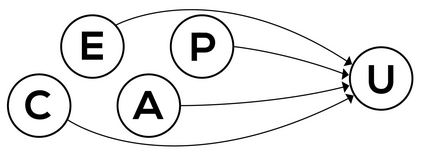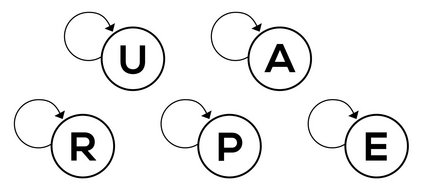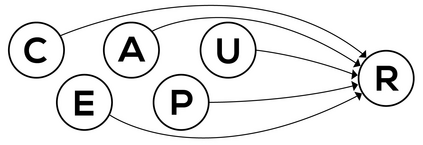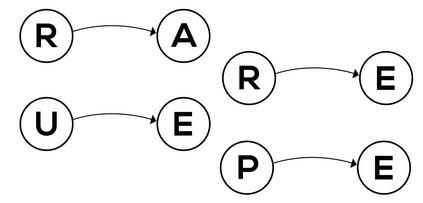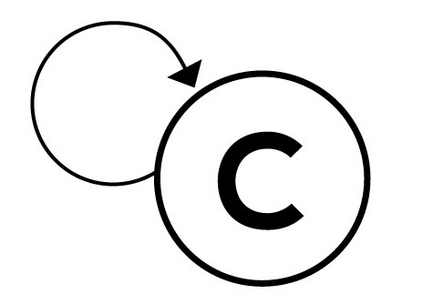Search systems are often used to support learning-oriented goals. This trend has given rise to the "search-as-learning" movement, which proposes that search systems should be designed to support learning. To this end, an important research question is: How does a searcher's \emph{type} of learning objective influence their trajectory (or \emph{pathway}) towards that objective? We report on a lab study ($N=36$) in which participants gathered information to meet a specific type of learning objective. To characterize learning objectives \emph{and pathways}, we leveraged Anderson and Krathwohl's (A\&K's) taxonomy \cite{anderson2001taxonomy}. Participants completed learning-oriented search tasks that varied along three cognitive processes (apply, evaluate, create) and three knowledge types (factual, conceptual, procedural knowledge). A \emph{pathway} is defined as a sequence of \emph{learning instances} (e.g., subgoals) that were also each classified into cells from A\&K's taxonomy. Our study used a think-aloud protocol, and pathways were generated through a qualitative analysis of participants' think-aloud comments and recorded screen activities. We investigate three research questions. First, in RQ1, we study the impact of the learning objective on pathway characteristics (e.g., pathway length). Second, in RQ2, we study the impact of the learning objective on the types of A\&K cells traversed along the pathway. Third, in RQ3, we study common and uncommon \emph{transitions} between A\&K cells along pathways conditioned on the knowledge type of the objective. We discuss implications of our results for designing search systems to support learning.
翻译:搜索系统通常用于支持学习导向的目标。 这一趋势引发了“ 搜索- 学习” 运动, 该运动建议搜索系统应该设计以支持学习。 为此,一个重要的研究问题是: 搜索者学习目标类型 如何影响他们实现该目标的轨迹( 或者 emph{ pathway} )? 我们报告一个实验室研究 (N= 36$ ), 参与者收集信息以满足特定类型的学习目标。 为了描述学习目标 \ emph{ 路径, 我们利用了 A 和 Krathwohl 的( AQK 的) 分类类型 税学 和 cite{anderson2001talogomy} 。 参与者完成学习目标 面向学习目的 的学习任务 。 我们的研究通过三个认知过程( 应用、 评估、 创建) 和三个知识类型( 事实、 概念、 程序知识 ) 被定义为我们学习过程 的 。 我们的研究, 我们的研究, 沿着 学习过程 的 。 ( rod) a sublevelmental rical rical ex


